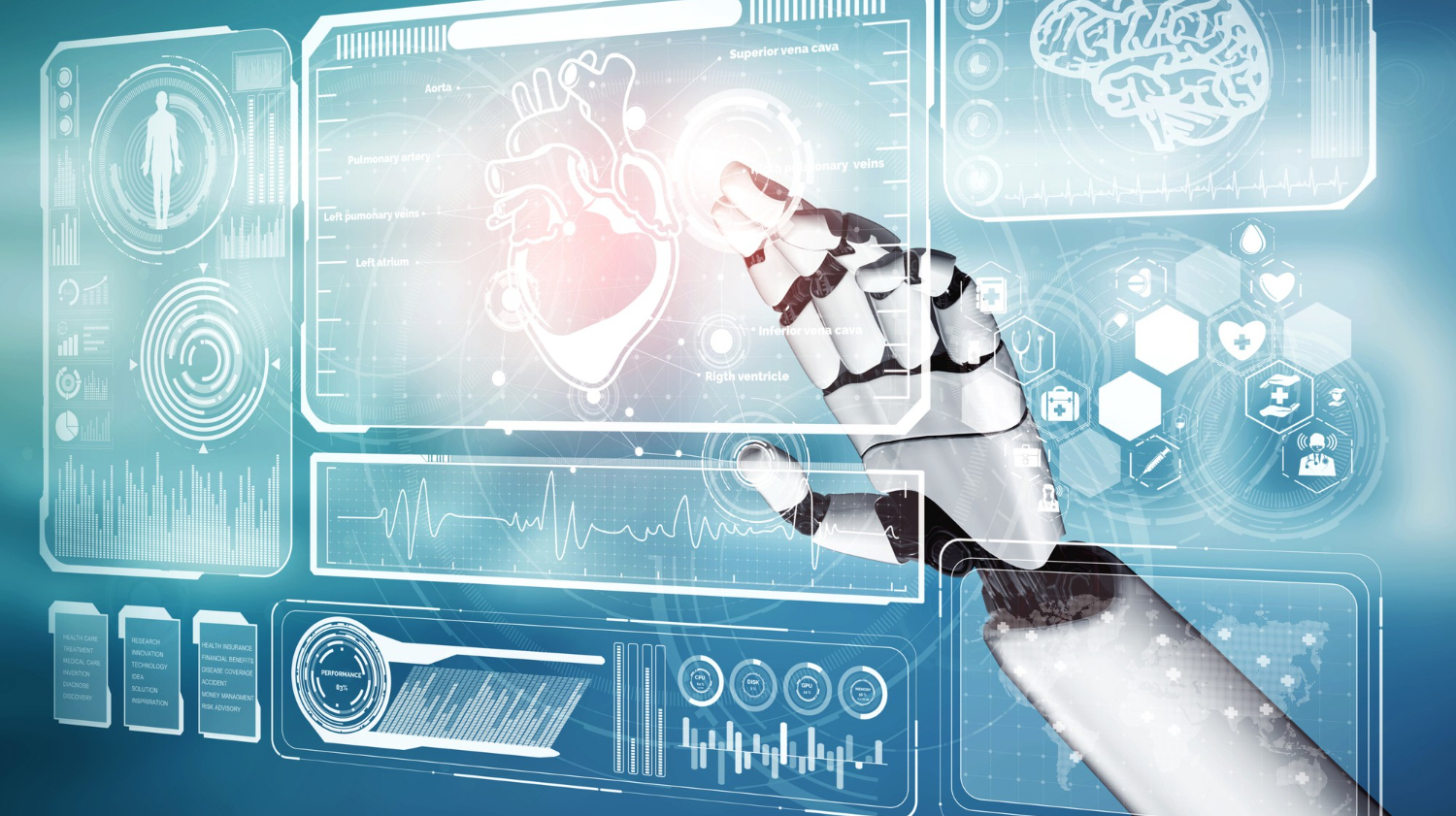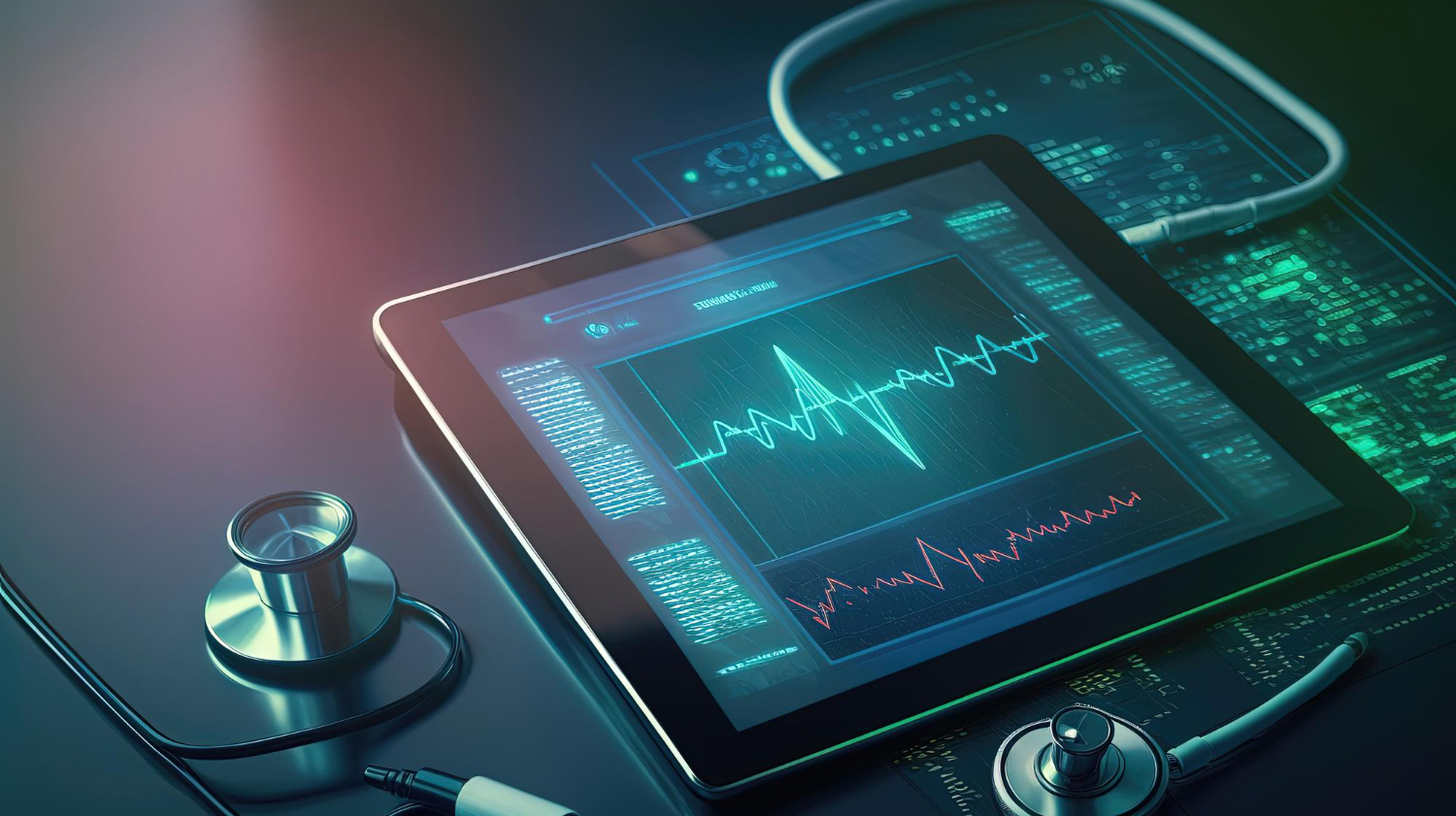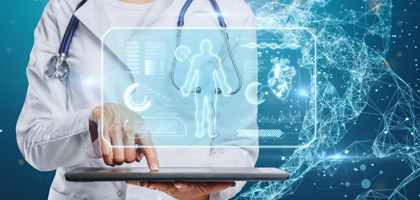
Blog
This Month in Healthcare IT:
Remarkable e-Health News in January
We understand the importance of staying at the core of healthcare IT at Tiga Healthcare Technologies. In a rapidly developing landscape, it is not just a choice but a necessity to keep updated on the latest developments. These developments represent technological advancements and mark a transformative phase in patient care and health data management. This month's progress sets a new benchmark for possible healthcare technologies. As January closes, we reflect on the significant strides made in healthcare IT.
Here are the top 12 developments that caught our attention on January 2024:
1. The WHO has released a report highlighting the advancements and ongoing challenges in digital health within the European Region, particularly in the wake of the Covid-19.

In a report released in 2023 by the World Health Organization (WHO), the European Region's advancements in digital health are brought into the spotlight. The report, drawing from the comprehensive 2022 Survey on Digital Health in the WHO European Region, critically analyzes the progress and challenges in integrating digital technologies in healthcare systems. The report, titled 'Digital Health in the WHO European Region: The Ongoing Journey to Commitment and Transformation,' underscores the accelerated growth of digital health, especially during the Covid-19 pandemic. This growth is a testament to technological advancements and reflects the urgent need for efficient, accessible and effective healthcare solutions. One of the report's key features is its inclusion of case examples from different countries. These examples illustrate a range of digital health applications and practices, showcasing how national contexts shape digital health strategies.
2. The World Economic Forum and Boston Consulting Group was published January 2024, titled 'Transforming Healthcare: Navigating Digital Health with a Value-Driven Approach.'
![]()
The World Economic Forum, in partnership with the Boston Consulting Group, an independent consulting company, released a report titled 'Transforming Healthcare: Navigating Digital Health with a Value-Driven Approach' in January 2024. This insightful analysis emphasizes the crucial role of digital, data and AI in addressing significant healthcare challenges, including rising costs, workforce shortages and unequal access to care. Despite substantial innovations, the report notes the need for a transformative impact on global healthcare systems. It advocates for a value-driven healthcare approach, heavily reliant on data and analytics and stresses the need for collaboration among all healthcare stakeholders to unlock the potential of digital tools.
Source: https://www3.weforum.org/docs/WEF_Transforming_Healthcare_2024.pdf
3. HIMSS' 2024 report highlights the critical need for updated healthcare cybersecurity strategies in response to emerging technologies and evolving regulations.

In a recent publication titled '2024 Predictions for Healthcare Cybersecurity,' HIMSS has highlighted the need for healthcare cybersecurity professionals to adopt a fresh perspective in the upcoming year. The focus is on evaluating and governing cybersecurity programs effectively, involving senior management and executives as champions of enterprise-wide cybersecurity initiatives. The report emphasizes the importance of motivating security awareness and staying abreast of technological advancements like AI, quantum computing, 5G and the Internet of Things.
Source: https://www.himss.org/news/2024-predictions-healthcare-cybersecurity
4. The ONC has released the draft of 'the United States Core Data for Interoperability (USCDI) Version 5', introducing two new data classes and 13 new data elements, detailed in an accompanying Standards Bulletin.

The Office of the National Coordinator for Health Information Technology (ONC)'s draft of the United States Core Data for Interoperability (USCDI) Version 5 is designed to enhance patient care and access, promote equity, reduce disparities, support underserved communities and facilitate public health data exchange. This draft presents two new data classes and 13 data elements, reflecting ONC’s commitment to a comprehensive and inclusive approach in healthcare data interoperability.
Source: https://www.healthit.gov/isa/sites/isa/files/2024-01/Draft-USCDI-Version-5-January-2024-Final.pdf
5. WHO has released a report titled ‘Ethics and Governance of Artificial Intelligence for Health: Guidance on Large Multi-modal Models.’

The World Health Organization (WHO) recently published a report titled 'Ethics and Governance of Artificial Intelligence for Health: Guidance on Large Multi-modal Models.' This report explores the role of AI in healthcare, mainly focusing on the innovative and complex large multi-modal models (LMMs). These LMMs represent a category of generative AI, capable of processing and generating varied outputs from diverse data types such as text, images and videos. The guidance issued by WHO is essential, as it addresses the need for ethical considerations and governance frameworks in applying LMMs in health-related areas. This report is a crucial step towards ensuring that the deployment of these advanced AI technologies is aligned with global health ethics and governance standards, enhancing their responsible and beneficial use in the future.
Source: https://www.who.int/publications/i/item/9789240084759
6. Boston Consulting Group has published a significant report, 'The Future of Digital Health 2024.'

'The Future of Digital Health 2024' report by Boston Consulting Group, an independent consulting company, predicts transformative advancements in at-home care, women's health and mental well-being through emerging digital technologies. The report underscores the transformation in healthcare delivery, with wearable and at-home devices, virtual hospital wards and remote diagnostics revolutionizing physician-patient interactions. The report also notes the expanding role of GenAI in diverse areas like drug development, consumer billing and cost improvement, marking a potential shift in the healthcare industry.
Source: https://www.bcg.com/publications/2024/the-future-of-digital-health
7. China reveals a smart Chinese medicine initiative, blending AI with traditional advanced chronic disease management methods.

China is advancing in smart Chinese medicine with the recent establishment of the CR-BU Joint Innovation Centre on Smart Chinese Medicine. This collaboration between Hong Kong Baptist University (HKBU) and China Resources Research Institute of Science and Technology focuses on developing a chronic disease management system. This system aims to track patient histories comprehensively and assist in follow-up care and long-term health management. It also provides a data pool for research, contributing to scientific medical discoveries.
Source: https://www.healthcareitnews.com/news/asia/china-doubles-down-smart-medicine
8. market.us published a report, titled 'the Blockchain Technology in Healthcare Market Size.'

In a recent report, 'the Blockchain Technology in Healthcare Market Size' by market.us, is forecasted to skyrocket from USD 3.9 billion in 2023 to an estimated USD 750 billion by 2033, growing at a Compound Annual Growth Rate (CAGR) of 69.2%. This technology introduces a decentralized ledger system, enhancing data security and interoperability in healthcare. It allows patients to control their health data and streamlines administrative processes, leading to greater efficiency and cost savings. The market growth is driven by the increasing demand for secure health data management, supported by regulatory initiatives and the rising adoption of digital health solutions.
Source: https://market.us/report/blockchain-technology-in-healthcare-market/
9. China launches a digital adaptation initiative for older people, focusing on tailored technologies and services to enhance their quality of life by 2025.

China's Ministry of Industry and Information Technology introduces a plan to enhance digital technology for older people by 2025, focusing on user-friendly design, accessible services and integrated healthcare monitoring, aiming to improve the well-being and independence of the aging population.
10. The HIMSS Physician Committee, led by Dr. Rakhal M. Reddy, made significant strides in healthcare IT in 2023, focusing on physician burnout, documentation and clinical informatics.

HIMSS Physician Committee, chaired by Dr. Rakhal M. Reddy, has approached its 2023 objectives, improving healthcare IT and tackling issues like physician burnout and documentation burden. The committee, diverse in expertise and backgrounds, conducted a virtual summit.
Source: https://www.himss.org/news/himss-physician-committee-2023-year-review
11. Researchers at Northeastern University use wearable biosensors and machine learning to predict aggression in autistic youth, enabling proactive intervention.

Researchers at Northeastern University have developed a wearable biosensor using machine learning to predict aggressive behavior in youth with autism in psychiatric facilities. Published in JAMA Network Open, the study involved 86 participants, recording physiological changes like cardiovascular and electrodermal activity. The device accurately predicted aggression three minutes prior, offering the potential for preemptive interventions.
11. Highland Marketing claims major 2024 health tech advances in NHS's electronic records and AI.

Highland Marketing, a leading analyst in healthcare technology, predicts significant advancements in 2024, focusing on the NHS's evolving needs against a backdrop of political change. Jeremy Nettle, chair of the advisory board, emphasizes the importance of stability for the NHS to address the Covid backlog and workforce issues. He stresses the crucial role of technology in this, especially with the impending general election. Highland Marketing's clients expect progress in areas such as electronic patient records, shared care records, and AI deployment, highlighting technology's essential role in a modernizing NHS.
Source: https://www.digitalhealthnews.eu/industry/7117-health-tech-priorities-for-2024

As we wrap up January 2024, we reaffirm our dedication to staying at the core of healthcare IT. Our active engagement in healthcare IT is not just observing global trends but integrating and improving them with our excellent products and solutions.
According to the WHO’s report on digital health developments in the European Region, we see similarities with our healthcare interoperability solutions. These solutions are at the core of our mission to ensure seamless integration and utilization of electronic health data across various systems and devices. By focusing on interoperability, we aim to deliver personalized care, directly addressing the needs highlighted in the report.
The World Economic Forum and Boston Consulting Group’s emphasis on electronic health records (EHR) resonates deeply with our Personal Health Record (PHR) System. This system is designed to offer 24/7 access to all patients’ health records, giving them the autonomy to manage their health data. It also enables real-time data integration from private and public health institutions, ensuring comprehensive health information is always available. This approach aligns perfectly with the global shift towards digitized and patient-centric healthcare.
Our Central e-Prescription system addresses the growing need for digital solutions in healthcare IT. This system encompasses all aspects of prescribing and integrating various stakeholders across the nation. Its dispensing component bridges the gap between pharmacies and healthcare providers, guaranteeing the accurate and timely delivery of drugs as per prescriptions.
With the increasing importance of AI and data analytics in healthcare IT, as highlighted in various reports, our ShareMind- Health Analytics Platform stands out as an accurate solution. This platform combines predefined machine learning models with data analysis, allowing researchers to develop their models securely. It exemplifies our dedication to supporting healthcare research by providing access to sensitive health data in a controlled, privacy-preserving manner.
Besides, our Health Analytics & Reporting solutions align with the growing demand for standardized health data analytics and BI reporting. This solution enables the analysis of health measures for the population, accessing the efficacy of healthcare management, reflecting our dedication to empowering healthcare through IT.
Our solutions, from Personal Health Record System to Central e-Prescription, are not just in line with current global healthcare IT trends; we are at the core of these trends. As we integrate these global insights, we adapt to and lead changes in healthcare IT. Our goal is to provide effective and efficient solutions for the greater good. Let’s continue to shape the future together, as always!









